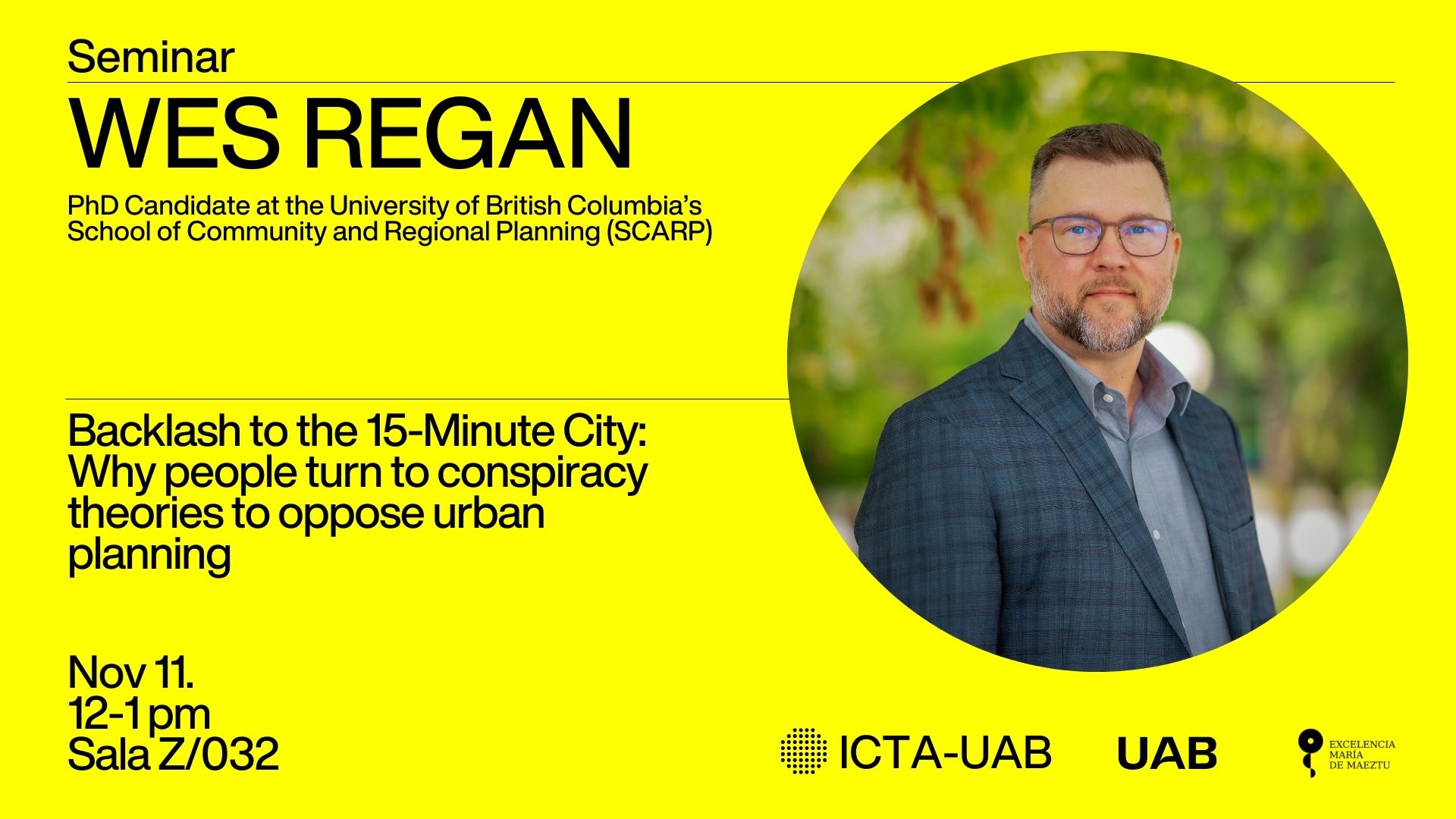Wes Regan, doctoral researcher at the University of British Columbia's School of Community and Regional Planning (SCARP) will be visiting ICTA-UAB to give a talk on the 15-Minute City.
Seminar: "Backlash to the 15-Minute City: Why people turn to conspiracy theories to oppose urban planning"
Speaker: Wes Regan, PhD candidate at the University of British Columbia's School of Community and Regional Planning (SCARP)
Date: Monday, November 11th 2024
Time; 12- 1pm
Venue: Room Z/032. ICTA-UAB
This talk will explore dissertation research in progress by Wes Regan, PhD Candidate at the University of British Columbia’s School of Community and Regional Planning (SCARP). Regan's research examines how planners in England and Canada responded after conspiracy theories and related misinformation spread online and helped mobilize opposition to a range of everyday planning work in the two countries. His central case study is the backlash to planning which became associated with online conspiracy beliefs involving the concept of the 15-Minute City, attributed to Carlos Moreno. This recent backlash serves as an example of a particular form of resistance to planning which draws on paranoias toward governments, elites, technical experts, and changes in society which has been aided by the growth of digital communications and social media and which increasingly defies traditional left-right political binaries. Bringing 15 years of experience in social policy, planning, and, since 2019, public health, Regan brings the concept of the “Infodemic” from the context of epidemiology and public health communication into the context of planning, alongside Charles Tilly’s Theory of Contentious Politics, in order to examine resistance to forms of planning (often relating to climate action at the urban scale), rooted in online misinformation, which share similarities to those seen during the covid-19 pandemic, and the ways in which planners today are responding.
Wes Regan currently holds the J. Armand Bombardier Fellowship for Sustainable Transportation and The Li Tze Fong Memorial Fellowship. His recent TedX Talk “When conspiracy theories threaten friendships” has garnered nearly 30,000 views and explores the threats to friendships and democracies alike posed by the epistemic polarization aided by popularization of conspiracy beliefs during the covid-19 pandemic and how we might improve our conversations with those who see as holding strange beliefs.
